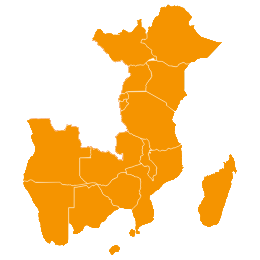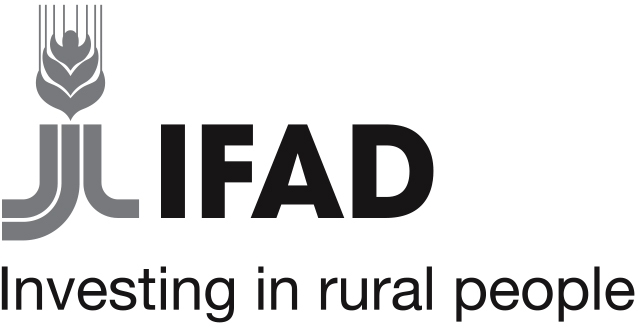Sustainable beekeeping in the Indian Ocean Islands
“Local bee-keepers gain access to the current standards in apicultural practices, equipment and research."
BACKGROUND
The impact of climate change on pollinator species populations has led to poor crop yields in the targeted countries.
The International Centre for Insect Physiology and Ecology's (ICIPE’s) training and research project aims to establish a sustainable bee-keeping industry that will improve pollinator health and act as an alternative livelihood source for smallholder farmers.WHAT’S INVOLVED
The ICIPE project can offer
- A three-pronged approach to pollinator scarcity, covering knowledge sharing, policy and strategy, and market access for bee-keepers
- Potential to work with an existing network of beneficiary countries across Africa
EXPLORE THIS SOLUTION
More secure income and food security
Compared with arable crops, bee-keeping is less sensitive to climate variation and can provide a more predictable source of income. Meanwhile, the pollination helps boost crop yields.
Entrepreneurship
The project supports smallholders in generating high-value hive products and promoting the sale their goods, with the aim of creating a unique market niche for Indian Ocean honey.
Bee conservation
In the past, bee-keepers used traditional practices and methods that did not sustain bee health and population numbers. The project offers new sustainable methods, and works to introduce policy changes that protect bees.
Knowledge sharing
Through this project, local bee-keepers gain access to the current standards in apicultural practices, equipment and research. Knowledge is shared across the community, strengthening networks of bee-keepers.

Countries involved
Mauritius, Seychelles, Comoros, Madagascar, and Tanzania
Project partners
EU
Share this solution
Bookmark this solution
BookmarkShow Full Solution
Summary
Technologies and services for better beekeeping and pollination could provide alternative sources of livelihood and improve crop yields in Indian Ocean island regions affected by climate change. Sustainable honey production could advance biodiversity conservation, strengthen resilience to environmental degradation and climate change, and create attractive alternative livelihood opportunities for the social and economic development of rural communities.
Challenge
Climate change has affected the economic development of the four Indian Ocean island nations, i.e. Comoros, Madagascar, Mauritius, and the Seychelles, as well as the Tanzanian island of Zanzibar, threatening rural livelihoods and agro-biodiversity resources. Loss of pollinator species has considerably reduced crop production, and compromised food security.
Beekeeping enterprises in these areas are generally underdeveloped and characterized by low productivity and traditional beekeeping practices, and the environment does not safeguard bee health. This has resulted in the introduction and spread of bee pests and diseases, leading to the near-total collapse of bee colonies in a number of regions. For instance, in 2012 the Varroa mite, a parasitic bee pest, infested a quarter of Madagascar’s hives, leading to a 90 per cent drop in honey production in the affected communities.
Solution
Research by various institutions, including the International Centre for Insect Physiology and Ecology (ICIPE), has shown the value of sustainably using commercial insects (especially honeybees) to help create sustainable livelihoods. Beekeeping can provide an alternative source of income for affected communities and offset the negative impacts of weather variability and climate change.
A two-year applied research and training grant, Alternative Livelihoods for Food and Income Security, was implemented by ICIPE. The grant is expected to promote modern beekeeping enterprises among targeted smallholder farmers in order to enhance their food and income security.
The grant is focused on developing the link between bee health management and beekeeping technology, ecosystem services, market access and procedures for national bee health policy and legislation, as well as reduced use of chemicals. Smallholder farmers are supported in using new technologies that help improve beekeeping and pollination and increase the production of honey and other hive products. At the national level, each country will develop an action plan that will include adding value to honey and other hive products for commercial purposes.
Three components are included in the programme:
Technology transfer: training of trainers, mobilization and training of smallholder farmers, identification and training of carpenters, establishment of beekeepers’ extension services for ongoing support in honey production, and demonstration apiaries for training farmers.
Development of marketplaces: establishment of marketplaces, establishment of honey collection centers, organic certification, and market linkages.
Capacity building of partner institutions: awareness creation and training of a pool of officials from key partner institutions to champion modern beekeeping development on each of the targeted islands.
Results
The project is effectively advancing and has achieved the following:
- Transfer of technologies for improved beekeeping and promotion of an innovative marketplace model for value addition.
- Improvement of partner institutions' capacity to understand and prevent the introduction and spread of bee pests and diseases, and to adopt supportive policies for the sustainable development of the bee industry.
- Growth in the sector by widely sharing lesson learning, knowledge management and the dissemination of information related to modern beekeeping technologies and practices.
Lessons learned and potential for replication
The lessons learned suggest:
- Technologies should be based on existing resources so local communities can more easily replicate them in different locations.
- Beekeeping productivity can intensify with time and number of improvements as natural, social and human capital is accumulated.
- Capacity-building offers greater benefits when accompanied by the introduction of new technologies.
Next steps
This is the third grant provided to ICIPE to test and develop in Africa. The first grant (date unknown) has reportedly led to the development of a sound base in all the participating countries with particularly impressive results in Kenya, where participants won an international award for organic honey production.
Although at this time it is too early to assess the outcomes of activities under the current grant, there should be evidence of outcomes from the earlier grants. Assessing results from the earlier grants would also be extremely useful designing scaling up activities under the different projects in the participating islands, the rest of Africa, and other regions
Solution Image
Solution Document Downloads
Solution Additional Resources
Honeybees of the Indian Ocean Islands: a diversity that must be preserved ICIPE Alternative livelihoods for food and income security in four Indian Ocean island nations (Mauritius, Seychelles, Comoros and Madagascar) and in Zanzibar (United Republic of Tanzania) Beekeeping, a key source of food security (Ministry for Youth, Sports and Culture)Last update: 09/08/2018


